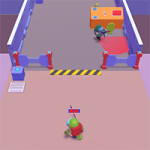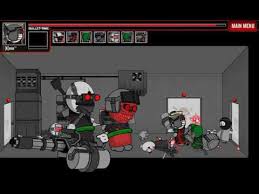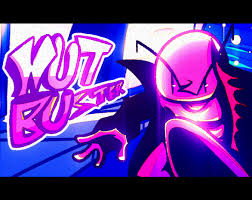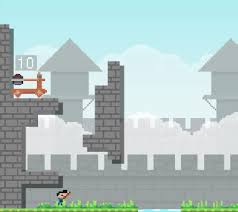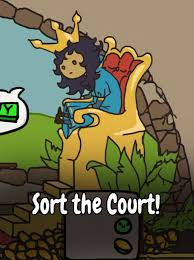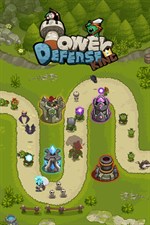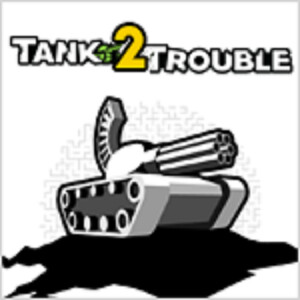In a world where digital platforms and virtual interactions reign supreme, the game “Among Us” has captured the imagination of gamers and students alike. But as players step into the shoes of crewmates and imposters, another type of imposter lurks beneath the surface imposter syndrome. This blog explores the fascinating intersection of the popular game Among Us and the psychological phenomenon of imposter syndrome, especially as it relates to online gamers and school students.
Online gamers and students often find themselves in competitive environments where the pressure to perform can be overwhelming. This pressure sometimes leads to feelings of self-doubt or inadequacy, commonly known as imposter syndrome. In this post, we’ll explore what imposter between us syndrome is, how it’s mirrored in the dynamics of Among Us, and why understanding it can make gaming and academic experiences more enjoyable and fulfilling.
By the end of this post, you’ll gain insights into how to identify and manage imposter syndrome in both gaming and real-life scenarios. We’ll also highlight practical tips to improve your confidence whether you’re navigating through space as a crewmate or trying to ace your next school project. Let’s uncover the imposters among us, both in the game and in our minds!
What is Imposter Between Us?
Imposter syndrome is the persistent feeling of self-doubt and belief that one is not as competent as others perceive them to be. It’s a psychological pattern where individuals attribute their successes to external factors such as luck, rather than their own skills or abilities. This syndrome isn’t limited to high achievers in professional fields; it’s also prevalent among students and gamers who feel like they’re just not good enough, despite evidence to the contrary.
The Origins of Imposter Syndrome
Originally identified in the 1970s, imposter syndrome was first seen among women in high-achieving fields. However, over time, researchers have found that people of all genders can experience these feelings of inadequacy. For students, this might manifest as a belief that they’re not as intelligent as their peers, while gamers may feel their skills aren’t up to par.
How Imposter Syndrome Manifests
For gamers and students, this syndrome can lead to anxiety and stress, impacting both mental health and performance. You might second-guess your decisions in a game or worry that your school projects aren’t good enough. Recognizing these feelings is the first step toward managing them. It’s important to acknowledge that everyone feels like an imposter sometimes, and it doesn’t detract from one’s capabilities or potential.
The World of Among Us
Among Us has taken the gaming world by storm with its simple yet engaging premise. Players are either crewmates or imposters, and the goal is to complete tasks or sabotage the mission. The tension and uncertainty of not knowing who to trust mirrors the feelings of imposter syndrome—never quite sure if you’re truly capable or if you’re just faking it until you make it.
Playing Among Us requires social interaction, collaboration, and sometimes deception. It forces players to communicate effectively, build alliances, and sometimes, lie to protect their identity as an imposter. These dynamics resonate with real-world situations where individuals might feel the need to “fake it” to fit in or to succeed.
The Overview for Gamers and Students
For many gamers and students, Among Us offers a way to engage socially and hone strategic thinking skills. It’s a game that doesn’t demand high-level graphic cards or intense focus, making it accessible and enjoyable. Yet, the social pressure it introduces can mirror the real-life pressure of feeling like an imposter in academic or gaming communities.
How Among Us Mirrors Imposter Syndrome
Being a crewmate involves completing tasks and working together, while being an imposter requires deceit and strategy. Similarly, individuals with imposter syndrome often feel like they’re wearing a mask, trying to blend in without being “found out.” This duality can help players realize the internal conflict they might be experiencing in real life.
Among Us is all about trust and deception, elements that are central to the experience of imposter syndrome. Trusting oneself is often difficult for those with imposter feelings, and the fear of being exposed can create significant anxiety. The game becomes a safe space to explore these feelings of deceit and self-doubt in a fictional setting.
Players of Among Us have to think on their feet, make quick decisions, and learn from past mistakes. These strategies can be applied to overcoming imposter syndrome—by focusing on skills improvement, building confidence, and acknowledging one’s achievements. The game encourages reflection and improvement, which can be beneficial in real-world scenarios too.
Acknowledge Your Feelings
The first step in overcoming imposter syndrome is acknowledging it exists. Understanding that these feelings are common among gamers and students can help reduce their power. It’s reassuring to know you’re not alone, and many feel this way at some point.
Celebrate Your Achievements
Taking time to appreciate your successes, whether in the game or in school, can build self-confidence. Celebrate each victory in Among Us, as well as every high score on a test. These achievements are a testament to your hard work and capability.
Engaging with a supportive community can help alleviate feelings of isolation that arise from imposter syndrome. Whether it’s fellow gamers or classmates, sharing experiences and advice can provide comfort and encouragement. Online forums or study groups can be excellent places for connecting with like-minded individuals.
Confidence is crucial for success in academics and gaming. By working on self-assurance in both areas, students can enhance their performances. Using games like Among Us to practice decision-making and risk-taking can translate into more confident attitudes in school.
Among Us requires clear and effective communication, a skill that is invaluable in school projects and presentations. Practice explaining your strategies and observations in the game, and carry that clarity into your classroom discussions. Effective communication can dismantle self-doubt and boost participation.
Strategic Thinking
The strategic thinking skills honed in Among Us can be applied to academic pursuits. Analyzing situations, anticipating challenges, and crafting solutions are competencies that can improve study habits and problem-solving abilities. Using these skills in school can lead to better understanding and academic success.
Conclusion
It’s fascinating how a simple game like Among Us can offer insights into a complex psychological phenomenon like imposter syndrome. For both gamers and students, recognizing these feelings and learning to manage them is essential for personal growth. By applying strategies from the gaming world to real-life situations, individuals can cultivate confidence, improve communication, and become more strategic thinkers.
Imposter Between us Unblocked syndrome doesn’t have to hold you back. By understanding its presence both in games and in life, you can begin to overcome it. Remember, everyone feels like an imposter sometimes, but with the right strategies, you can turn those feelings into strengths. Explore more about how games like Among Us can aid in personal development and consider joining communities that foster support and skill-building.

